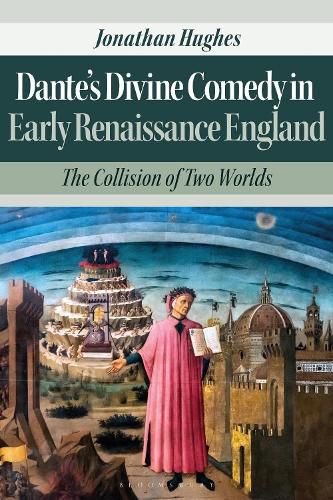Readings Newsletter
Become a Readings Member to make your shopping experience even easier.
Sign in or sign up for free!
You’re not far away from qualifying for FREE standard shipping within Australia
You’ve qualified for FREE standard shipping within Australia
The cart is loading…






Dante’s Divine Comedy in Early Renaissance England compares the intellectual, emotional, and religious world of Dante in 13th-century Florence with that of a group of English intellectuals gathered around Humphrey, Duke of Gloucester, uncle of the King, Henry VI.
Here, Jonathan Hughes establishes that there was a Renaissance in 15th-century England, encouraged by the discovery and translations of works of Greek philosophers and developments in science and medicine; and that vernacular writers in Gloucester’s circle, such as John Lydgate and Robert Hoccleve, were of fundamental importance in exploring the meaning of the self and man’s relationship with the natural world and the classical past. However, the appearance in 15th-century England of Dante’s ‘Commedia’, the most popular work of the Middle Ages, served to remind writers and readers of the cost of intellectual enquiry: the loss of faith in a harmonious and beautiful world; the redemptive power of the love of a woman; and the tangible presence of an afterlife.
Engagingly written and meticulously researched, this innovative study shines a new perspective on Dante scholarship as well as offering a unique anaylsis of intellectual thought and culture in 15th-century England.
$9.00 standard shipping within Australia
FREE standard shipping within Australia for orders over $100.00
Express & International shipping calculated at checkout
Dante’s Divine Comedy in Early Renaissance England compares the intellectual, emotional, and religious world of Dante in 13th-century Florence with that of a group of English intellectuals gathered around Humphrey, Duke of Gloucester, uncle of the King, Henry VI.
Here, Jonathan Hughes establishes that there was a Renaissance in 15th-century England, encouraged by the discovery and translations of works of Greek philosophers and developments in science and medicine; and that vernacular writers in Gloucester’s circle, such as John Lydgate and Robert Hoccleve, were of fundamental importance in exploring the meaning of the self and man’s relationship with the natural world and the classical past. However, the appearance in 15th-century England of Dante’s ‘Commedia’, the most popular work of the Middle Ages, served to remind writers and readers of the cost of intellectual enquiry: the loss of faith in a harmonious and beautiful world; the redemptive power of the love of a woman; and the tangible presence of an afterlife.
Engagingly written and meticulously researched, this innovative study shines a new perspective on Dante scholarship as well as offering a unique anaylsis of intellectual thought and culture in 15th-century England.